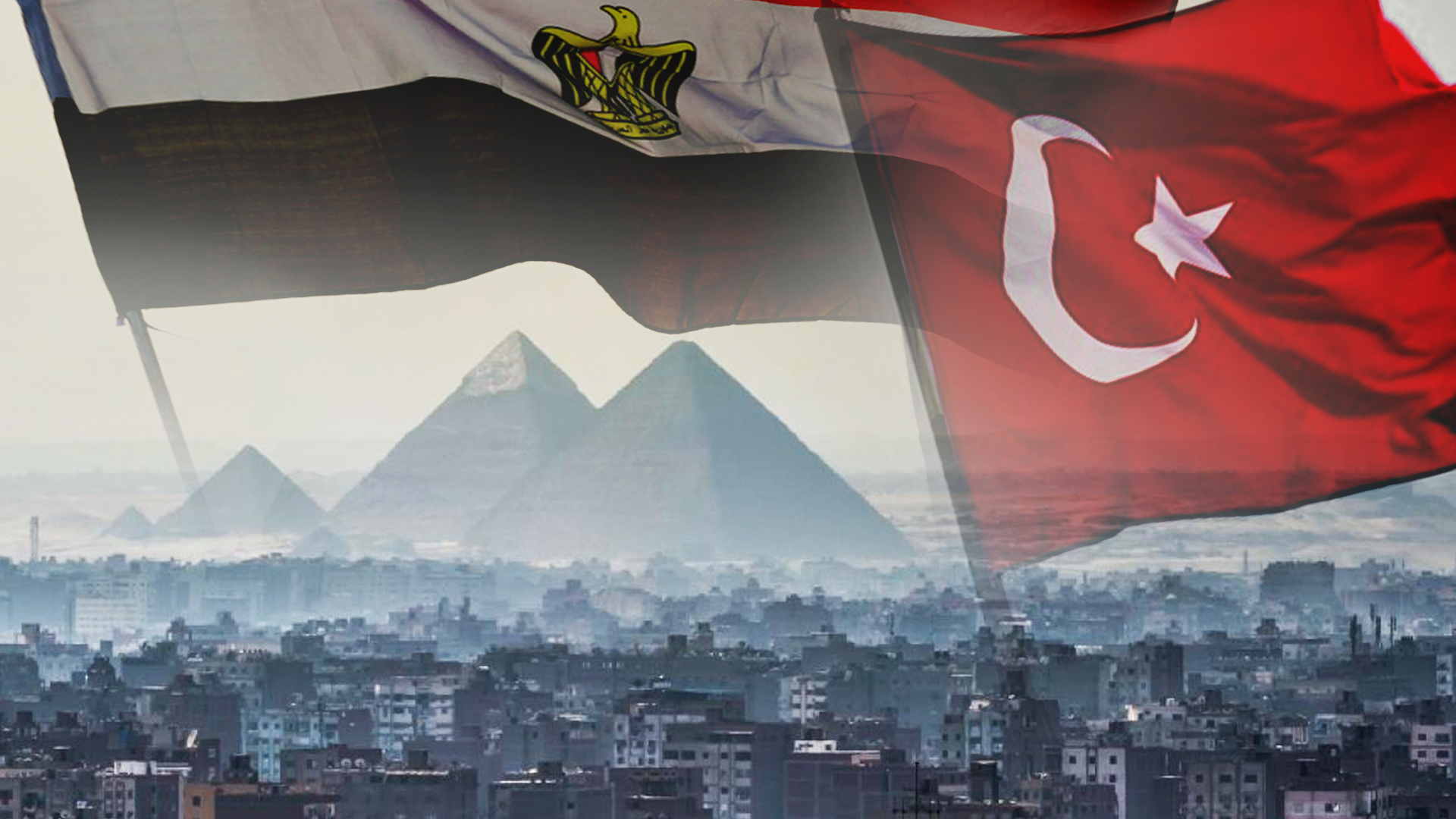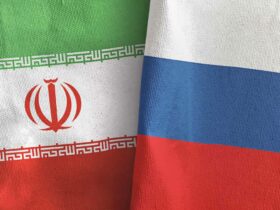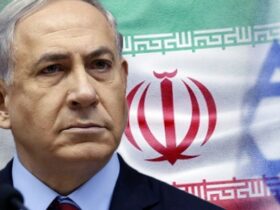The crisis that the Egyptian-Turkish relations witnessed in recent years was not an exceptional event in the history of diplomatic relations between the two countries, which began in 1925 after the proclamation of the Turkish Republic.
Any examination of the course of relations between the two countries clearly reveals that these relations ranged from ebb and flow, prospering only temporarily.
Repeated crises
During the last century, relations between Cairo and Ankara passed through many crises and tensions, which coincided with the critical stages in the development of the Egyptian political system.
With the overthrow of the rule of the Muhammad Ali family and the proclamation of the republic in 1953, President Gamal Abdel Nasser expelled in 1954 the Turkish Ambassador to Cairo, Hulusi Fuad Tugay. This was done against the backdrop of Turkish positions that Cairo considered hostile to Arabs and the new political system in Egypt.
The chill in relations between Cairo and Ankara at that time caused Turkey’s silence regarding the tripartite aggression against Egypt in 1956, which in turn led Nasser to adopt a policy in support of Greece in its dispute with Turkey over the island of Cyprus.
Tensions rose again between Egypt and Turkey in 1961, when Ankara welcomed the collapse of the unity between Egypt and Syria. Egypt expelled the Turkish Ambassador for the second time in the Nasserite era.
Relations during the seventies and eighties were limited to the economic rather than the political sphere, with the exception of some mutual visits by some senior officials.
Relations between the two countries returned to a thaw in 1988 when Egypt asked the Egyptian-Turkish committee to develop proposals to achieve the common interest between the two countries.
In the 1990s, political relations strengthened significantly due to the role Egypt played in calming the situation between Turkey and Syria in their disputes over water, borders and the Kurds.
The 1990s also witnessed Egypt accepting the invitation of the then Turkish Prime Minister Necmettin Erbakan to join an Islamic economic group known as the D-8 Organization for Economic Cooperation.
However, the Turkish stance in support of the Muslim Brotherhood-led regime, following the Revolution of January 25, 2011, caused Egyptian popular concern about Ankara’s regional policies.
The Turkish position rejected the June 30 Revolution, which toppled the rule of President Mohamed Morsi, and Ankara supported the Muslim Brotherhood movements outside Egypt that were against the new political system. In consequence, relations between Ankara and Cairo reached a deep crisis on the public and official levels.
Despite the Turkish claim that the rejection of political change in Egypt stems from the rejection of military coups, this claim does not stand up to the reality of what happened in Egypt during that period.
What happened in 2013 was a real popular Revolution similar to the events of the January 25 Revolution, which Turkey had supported. Both were popular revolutions against an authoritarian rule, and the army had no choice but to side with them.
The Turkish position did not stop at rejecting the political changes that took place in Egypt, but it continued to describe what happened as a military coup and dealt with it accordingly.
The new political system in Egypt considered Ankara’s declarations as a blatant interference in the matter of a sovereign state in violation of the United Nations General Assembly Resolution No. 103/36 of 1981.
Contradicting Visions
With the contradiction of the two visions, the deterioration of relations between Cairo and Ankara was inevitable, and a new episode began in the series of crises between the two countries.
Any objective analysis of the history of the relations between the two countries will realize, that their differing visions are inevitable, as Turkey and Egypt are two great and competing powers in the region.
The Turkish vision is summarized in the fact that Egypt is a great regional power, and weakening it is a necessity, because it is a competing regional power that makes Ankara’s moves in the region difficult. This vision explains why Turkey rejects any political developments that might strengthen the Egyptian state.
On the other hand, the Turkish vision itself desires a strong Egypt at certain levels, because its weakness gives other powers the opportunity to emerge as regional actors, with whom it may be difficult for Ankara to deal with. This vision explains the positive signs recently announced by Turkey regarding Egypt, especially in light of the complexities of the regional status quo.
Turkey is a large country and has its interests in the Middle East and in the Eastern Mediterranean region, but it faces challenges to those interests from other active regional powers, such as Israel, Iran, Saudi Arabia, the UAE and Greece.
With the growth of the axes’ policy in recent years regarding the various issues that touch on Ankara’s interests and national security priorities, Turkey has found itself every time in the opposite axis to Egypt.
The Turkish administration realizes that Egypt is a strong and influential country in all the axes to which it belongs, whether in regard to the Libya, the Eastern Mediterranean region, or the Arab Gulf. Therefore, it is natural for Ankara to seek normal relations with Cairo, in order to enable talks and understandings with it that guarantee its interests.
On the other hand, Egypt sees Turkey as a great regional power. However, due to the priorities of the Egyptian national security, which considers the Arab world one of its most important circles, Cairo is deeply concerned about the Turkish expansion in the region, be it in Libya, in Syria, or in Iraq.
From this perspective, any talk or action on the Turkish side about restoring the Ottoman past raises alarm bells in every Arab capital, not to mention Cairo.
Egypt saw in the words and actions of Turkish officials during the past ten years a rough attempt to revive this era, not to mention the violation of the sovereignty of the countries of the region and even the provisions of international law, regardless of the allegation otherwise.
The statements of Egyptian Foreign Minister Sameh Shoukry before Parliament on March 14th regarding relations with Turkey were a revealing summary of this vision and the extent of Cairo’s readiness to restore normal relations with Ankara.
“If we find a real change in Turkish policy that is consistent with the Egyptian goals for regional stability and non-interference in the internal affairs of countries, then this will be the basis for restoring normal relations with Turkey”, Shukry said.
In an indirect response to the positive signs that came from Turkish officials, the Egyptian minister said “Words are not enough and must be combined with actions that lead to normal relations”.
In my opinion, Shoukry’s recent statements clearly reveal that Egypt has gone far beyond the traditional view, which believes that the restoration of relations between the two countries depends on the cessation of Turkish support for the organization of the Muslim Brotherhood and the handover of a number of its leaders to Cairo.
The Egyptian Minister’s talk about linking the return of relations to “the Egyptian goals for the stability of the region and non-interference in the internal affairs of countries” is a clear indication that Cairo is not concerned with any normalization between the two countries unless it achieves consensus on multiple regional files, in Syria, Libya and Iraq, for example, and not only Eastern Mediterranean Gas.
Shukry’s statements indicate something more: Egypt realizes that any positive or negative move regarding relations between the two countries will surely have repercussions beyond the bilateral relationship on the entire Middle East region, especially in light of the growing Turkish role in the region.
So the Egyptian vision stems from that Cairo clearly sees challenges that plague its Arab region, which affect Egypt’s security and interests.
According to this Egyptian vision, Cairo’s geopolitical and regional concerns raised by the Turkish expansion in the Middle East and the Horn of Africa needs to be addressed and concluded with a mutual understanding, if Turkish-Egyptian relations are to thrive.
Consequently, the two countries realize that their relations will not reach the level of a strategic alliance, at least not in the short and medium terms, in light of competition and scrambling between them on many issues.
Signs of goodwill
As has been demonstrated above do the two countries know each other very well, and they are well aware of each other’s strengths and interests. However, mutual interests are representing a motive for both parties to review their relations, priorities and interests before engaging in any serious, high-level talks to discuss a package of issues that pit them against each other.
In the past, they also experienced that the boom in relations helped defuse major disasters and wars (for example, the former Egyptian president Hosni Mubarak intervened in defusing a war between Syria and Turkey). The normal relations between Cairo and Ankara also helped in achieving significant economic gains for both sides.
Based on the complexities of reality and the experiences of the past, there is a conviction on both sides to keep the ball rolling until the conditions allow to return to normal relations step by step. This is the reason by why both sides have started sending positive messages.
Turkish officials said that Cairo took into account their concern in the issue of Eastern Mediterranean gas by respecting the Turkish continental shelf in the international exploration bid, regardless of the backlash messages that sometimes come from the two countries.
On the other hand, the positive signs from Ankara were limited to the friendly statements of Turkish officials about Egypt.
But Cairo, according to Shoukry, does not look at words as much as it looks at actions. Consequently, the Egyptian administration expects Turkey to take into account with the utmost seriousness Egypt’s reservations about its interference in the internal affairs and in the issues that are the core of its national security.
The Egyptian waiting for a positive action by Ankara may be what prompted the Turkish authorities to ask the TV channels affiliated with the Brotherhood and that broadcast from Turkey to reduce criticism of the Egyptian regime, according to recent news. Many observers inside Egypt saw this as only a first of many steps before any discussion of reconciliation.
Catalysts
Although the complex developments in the region are catalysts for the normalization of relations between the two countries, they also present many obstacles.
The international decision on the political settlement in Libya led to the elimination of the possibility of a direct or proxy armed confrontation between the two countries. Without this settlement, improving relations was impossible.
The expansion of Israel politically, economically and militarily in the Gulf and the Horn of Africa should worry both Egypt and Turkey about their interests and roles in the region.
The conflict over the demarcation of maritime borders and exclusive economic zones is also one of the most important catalysts for the return to cooperation and understanding in the Egyptian-Turkish relations.
While the understanding with Egypt guarantees Turkey a better chance in its legal battle in the Mediterranean waters against Greece and Cyprus (the author refers to the Greek Cypriot Administration of South Cyprus, United World International), it also opens the door for talks between Cairo and Ankara on this and various other issues of concern.
On the other hand, the emerging US moves in the region create opportunities and challenges. These moves may lead to a settlement in Yemen and a new deal with Iran, so that efforts will move to arrangements for collective security that require a series of settlements and understandings in Palestine, Lebanon, Iraq, the Kurdish issue, the wealth of the eastern Mediterranean, and the sharing of influence in Syria. However, these moves may lead, at the same time, to a heated and direct Israeli-Gulf confrontation against Iran. In both cases, the Egyptian-Turkish-Saudi understanding will have a strong impact on paths and outcomes.
Obstacles
The policy of axes in the region creates a complex conflict and constitutes the most important obstacle on the road to relations between Cairo and Ankara.
The policy of regional axes expanded due to several crises. The Gulf crisis resulted in the emergence of an axis that includes Egypt, Saudi Arabia, UAE and Bahrain in the face of an axis that includes Turkey, Qatar and Iran.
With regard to the demarcation of the maritime borders in the eastern Mediterranean, an axis has emerged that includes Turkey and Libya, facing an axis that includes Egypt, Greece, Cyprus and Israel.
Regarding the Libyan crisis, an axis has emerged that includes Turkey and Italy opposing Egypt, France and UAE.
According to those axes, Cairo is a point of contact on two issues of great importance to Turkey, namely relations with the Gulf and arrangements for the Eastern Mediterranean.
In light of the importance of these axes for Egypt, Cairo is very cautious about any positive signs coming from Ankara.
Observers believe that the Turkish government may not seek reconciliation as much as it seeks to dismantle the alliances of its opponents through claims of reconciliation with one of them.
The Jerusalem Post newspaper says that with this reconciliation, Turkey is trying to weaken the two alliances of Egypt; its alliance with Cyprus, Greece and Israel, and its alliance with Saudi Arabia, the Emirates and other Arab countries. Turkey is also trying to promote reconciliation with Israel with the aim of sabotaging its gas pipelines project with Cyprus and Greece, says the newspaper.
Many inside Egypt agree with the viewpoint of the Israeli newspaper and say that Turkey is trying to isolate Israel, Greece and Egypt from each other by claiming reconciliation with any of them.
Even the positive signs emanating from Cairo were met with apprehension from Egypt’s allies.
Greek media indicated that Egypt’s announcement of a tender for oil and gas exploration in the Eastern Mediterranean that respected the exclusive economic zone drawn up by Turkey may be a sign of a possible agreement between Ankara and Cairo on this issue.
Greek newspaper “Kathimerini” said that although this step would not lead to an immediate reconciliation, it indicated that Cairo had left the door open for Ankara for future talks.
Another obstacle to improving relations with Egypt, and even with other Gulf states such as Saudi Arabia, UAE and Bahrain, is Ankara’s continued support for the Muslim Brotherhood.
This group that was founded in Egypt in 1928 to restore the Ottoman caliphate after its fall, gives Ankara an army of elements that promote Turkey’s interests in the Middle East, and creates a public opinion that suits its orientations.
Therefore, Ankara will find it difficult to make real concessions regarding support for that group in the region. Egypt and its allies will also find it very difficult to initiate steps forward towards Ankara without a tangible halt to the support provided to the elements of that organization.
Due to the difficulty of achieving a breakthrough at this level so far, an Egyptian official denied to local media any resumption of high-level talks between the two countries.
The unnamed official added that developing the relationship between Egypt and Turkey requires taking into account the legal and diplomatic frameworks that govern relations between countries on the basis of respecting the principle of sovereignty and the requirements of Arab national security. This statement is similar in content and purpose to the statements of the Egyptian Foreign Minister before Parliament.
“Respecting the principle of sovereignty” implicitly but clearly indicates the rejection of using the terrorist Brotherhood to blackmail the region’s regimes and threaten their stability.
Pragmatism & responsibility
So it might be too early to expect a warm Turkish-Egyptian rapprochement, because the reality is more complex. The difficulty of having political communication between the presidents of the two countries, against the background of the personal attack launched by President Recep Tayyip Erdogan against President Abdel Fattah al-Sisi, means that any relations between the two countries will be minimal, at least in the short term.
It is true that the stew has not matured yet, but the pragmatism of the Turkish administration and the responsibility that characterizes the Egyptian administration in managing its international relations, which allowed the continuation of economic relations between the two countries throughout the years of the crisis, could be factors that ultimately lead to normal relations in the medium or long term.

















Leave a Reply